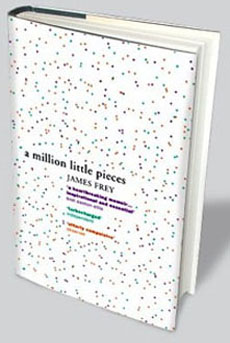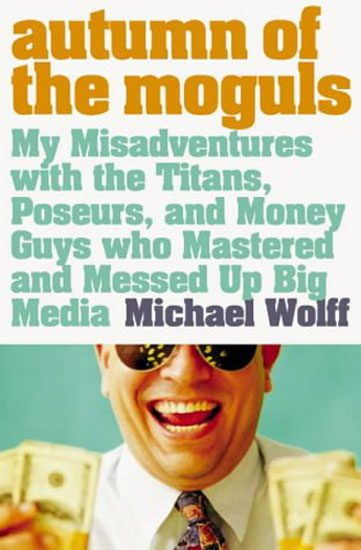Back from a relaxing sun-baked holiday in Israel (as seen in photo-strips below).
Caught up with my old friend Guy (pictured above & previously name checked here).

Guy lives with wife & 2 kids in an eye-opening ultra-orthodox area, Bnei Brak. I spent a considerable amount of time hanging out in Bnei Brak's hood (!) as an onlooker clocking a parallel universe, sweltering in the sun but frozen in time. I truly admire Guy's balanced focused, devout devotion to the continued learning of religious study and family - his bible? The Torah, Mine? Popular Culture!!
Guy took me to his local Yeshiva where armies of basic black suit/white shirt devotees swarmed around, devouring Torah pages like bees to honey.

Guy lent me 'The Path Of The Just' to read. I dipped in and found it terrifying yet thrilling with its detailed scriptures that outline a super-strict way of life, leading to ultimate spirituality.

I read another incredible spiritual book on holiday, James Frey's 'A Million Little Pieces'. If you've ever faced personal addiction (booze, drugs, sex, food etc.) or known an addict close to you, this book will have you hooked, start to finish. In short, 23 year old James Frey has practically shattered his mind & body into 'A Million Little Pieces' and enters rehab to rebuild his life.
The book initially reminded me of J.D. Salinger's 'Catcher In The Rye' and Spencer's blog (which I stumbled across in the Guardian Guide). Soon however it was like print PCP. I could relate to so many of the experiences in this memoir, the raging 'Fury', compulsions, 12 steps etc. Overall the author's constant detailed stream of consciousness is so staggeringly real, raw & acutely accurate; each aching emotion (from the excrutiating to the euphoric) had me gripped right to the last dot.
The IMDB geeks are already salivating over cast & music etc. for the up-and-coming film adaptation. I can't wait. Make-up will obviously be key too & with regard to 'Music Supervision'; I'm brimming with 'score' & 'source' suggestions - get in touch Laurence or James if you pick this up whilst googling.

Also read Michael Wolff's 'Autumn Of The Moguls', another detail-heavy book though not much spirituality or religion here unless you worship 'Media' as your golden calf.
Wolff's research, insight & 1st hand involved observations on the biz and its media titans like Rupert Murdoch, Barry Diller, Michael Eisner, is a raucous rollercoasting ride packed with humour, madness and heaps of hype. Like Matt Groening's 'Simpsons' parody of Murdoch, Wolff almost bites the hand that feeds with his brave strong open opinions on the 'M' man himself.
And like the New Yorker bloke, Russell Jones, who kept getting mistaken for rapper Ol' Dirty Bastard or Dave Gorman tracking down all the other Dave Gorman's round the world, I laughed out loud in chapter 9 ('More Michaels') where author Michael Wolff describes the confusion and meeting his namesake, 'Michael Wolf':
"Our names and mutual media interest have thoroughly linked us. I get his mail and telephone calls and get asked to make his television appearances. People I don't know call me in the hopes that I will tell them how they can turn their businesses into media plays. We may, of course, be helping each other - each expanding the other's brand. Once, when I unraveled the confusion on one television show - that it was not me they wanted but the other Michael Wolf(f) - the producer said I would do anyway. A McKinsey competitor took me to lunch to suggest that I ought to work with them because then we could get some of the business that the other Michael Wolf(f) was getting, which would be fair because he was getting business because people thought he was me."
Media moves at a mighty pace and even though this book hit my radar late, so much of Wolff's intelligent thoughts are still pertinent and sharp; strange there's no mention of video games whatsoever. Anyway, boy is Chapter 15 'Unreal Property' a doozie, taking a look a swift look at the music business and 'file-sharing':
"It's easy to understand why for the movie and music guys it's primal-scream time. They maintained a very basic relationship with the consumer - we make, you buy - which suddenly was messed up, not least of all by the media empires to which the movie and music business belonged........
......There'll still be some big hits (Celine Dion is Stephen King), but even if you're fairly high up on the music-business ladder, most of your time, which you'd previously spent with megastars, will be spent with mid-list stuff. Where before you'd be happy only at gold and platinum levels, soon you'll be grateful if you have a release that sells 30,000 or 40,000 units - that will be your bread and butter. You'll sweat every sale and dollar. Other aspects of the business will also contract - most of the perks and largesse and extravagance will dry up completely. The glamour, the influence, the youth, the hipness, the hookers, the drugs - gone. Instead it will be a low-margin, consolidated, quaintly anachronistic business, catering to an aging clientele, without much impact on an otherwise thriving culture awash in music that only incidentally will come from the music industry.
This glum (if also quite funny) fate is surely the result of compounded management errors - know-nothingness as well as foolishness and acting-out (suing college kids). But it's way larger too. Management solutions in the music business have, rightly, given way to a pure, no-exit kind of fatalism.
It's all pain. It's all breakdown. Music-business people, heretofore among the most self-satisfied and self-absorbed people of the age are suddenly interesting, informed, even ennobled, as they become fully engaged in the subject of their own demise. Producers, musicians, marketing people, agents...they'll tlak you through what's happened to their business - it's part B-school case study and part Pilgrim's Progress.
Radio and rock and roll have had the most remarkable symbiotic relationship in media - the synergy that everybody has tried to re-create in media conglomerates. Radio got free content; music labels got free promotion.
Radio's almost effortless cash flow and mon-and-pop organization, made it ripe for consolidation, which began in the mid-eighties and was mostly completed as soon as Congress removed virtually all ownership limits in 1996. A handful of companies now control nearly the entirety of U.S. radio, with Clear Channel and its more than 1,200 stations being the undisputed Death star.
Radio, heretofore ad hoc and eccentric and local, underwent a transformation in which it became formatted, rational and centralized. Its single imperative was to keep people from moving the dial - seamlessness became the science of radio.
The music business suddenly had to start producing music according to very stringent (if unwritten) commercial guidelines. Format became law. Everything had to sound the way it was supposed to sound. Fungibility was king. Familiarity was the greatest virtue.
Once Sheryl Crow was an established hit, the music business was compelled to offer up and endless number of Sheryl Crow imitators. Then when the Sheryl Crow imitators became a reliable radio genre, Sheryl Crow was compelled to imitate them. But then, just as radio playlists become closely regulated, the Internet appears. File sharing replaced radio as the engine of music culture.
It wasn't just that it was free music - radio offered free music. But whatever you wanted was free, whenever you wanted it. The Internet is music consumerism run amok, resulting not only in billions of dollars of lost sales but in an endless bifurcation of taste. The universe fragmented into subuniverses, and then sub-subiniverses. The music industry, which depends on large numbers of people with similar interests for its profit margins, now had to deal with an ever-growing number of fans with increasingly diverse and eccentric interests.
It is hard to think of a more profound business crisis. You've lost control of the means of distribution, promotion, and manufacturing. You've lost quality control - in some sense, there's been a quality-control coup. You've lost your basic business model - what you sell has become as free as oxygen.
For a long while, the management response at the major labels had a weird combination of denial and foot stomping: putting Napster out of business - then sort-of/sort-of-not buying Napster - all the while being told by everybody who know anything about technology that no matter what the music industry does or who it sues, music will be, inevitably, free. Duh. There is, too, a management critique - perhaps most succintly put by Don Henley in his now infamous post-Grammy letter wherein he quoted Mel Brooks Blazing Saddles: "Gentlemen, gentlemen! We've got to protect our phoney baloney jobs!" - that sees record labels as generally engaged in the uusual practive of ripping off anyone who can be ripped off while remaining oblivious to the fact that Rome is burning.
It's a spreadsheet solution. There will continue to be a market for selling music; however diminished - but it will have to be cheaper music. Margins will shrink even more. Accordingly, costs will have to shrink. Spending a few million to launch an act will shortly be a thing of the past.
And then there is the CD theory. This theory is widely accepted - with great pride, in fact - in the music industry. It represents the ultimate music-biz hustle. But its implications are seldom played out.
The CD theory holds that the music business actually died about twenty years ago. It was revived without anyone knowing it had actually died because compact-disc technology came along and everybody had to replace what they'd bought for the twenty years prior to the advent of the CD.
The music business, this theory acknowledges, is about selling technology as much as music. From Mono to Stereo to Walkman. It just happens that the next stage of technological development in the music business has largely excluded the music business itself.
The further implication, though, might be the more interesting and painful one: You can't depend on just the music.
Howard Stringer, interviewed by Heilemann during lunch on the subject of file sharing and the future of the music business, was a world-weary presence. He had come out of the news business and risen through the ranks of network television and found himself on top of an anomalous media empire as chairman of Sony America. Sony had been slated to take over the media world a generation or so ago, but had faltered when it realized it had paid too dearly for what it had bought, and then when the Japanese economy fell apart, and finally when it learned that all of this hardware-software-cross-platform synergy was, relatively speaking, bunk.
And even here, it was amusing to hear Stringer on the irony of Sony America's reverse synergy - Sony, with its myriad listening devices, actualy benefited from people stealing music. Although Stringer too said it was a terrible, terible thing that college kids everywhere were stealing all this stuff, and obviously felt compelled to play the stern father, he also, I would bet, got the joke.
Respec' etc. to Wolff and his gonzo approach to this novel, suprised this guy's not more of a mighty-morphin' Media Mogul himself after reading this book, he ought to be.

Final bit of holiday media consumption was 'Hostage', Bruce Willis doing 'Die Hard' again for the die-hard fans. A no-brainer fun mash-up of film styles and influences, 'Hostage' went from 'Panic Room' to 'Scream' with the final stages going Western. Big up to the Trent Reznor look-a-like spurned boyfriend baddy!!! (played by Ben Foster who's just been cast as 'Angel' in X-Men 3).

© 2005 Green Bandana Productions Ltd. Website design by Steve Mannion.










